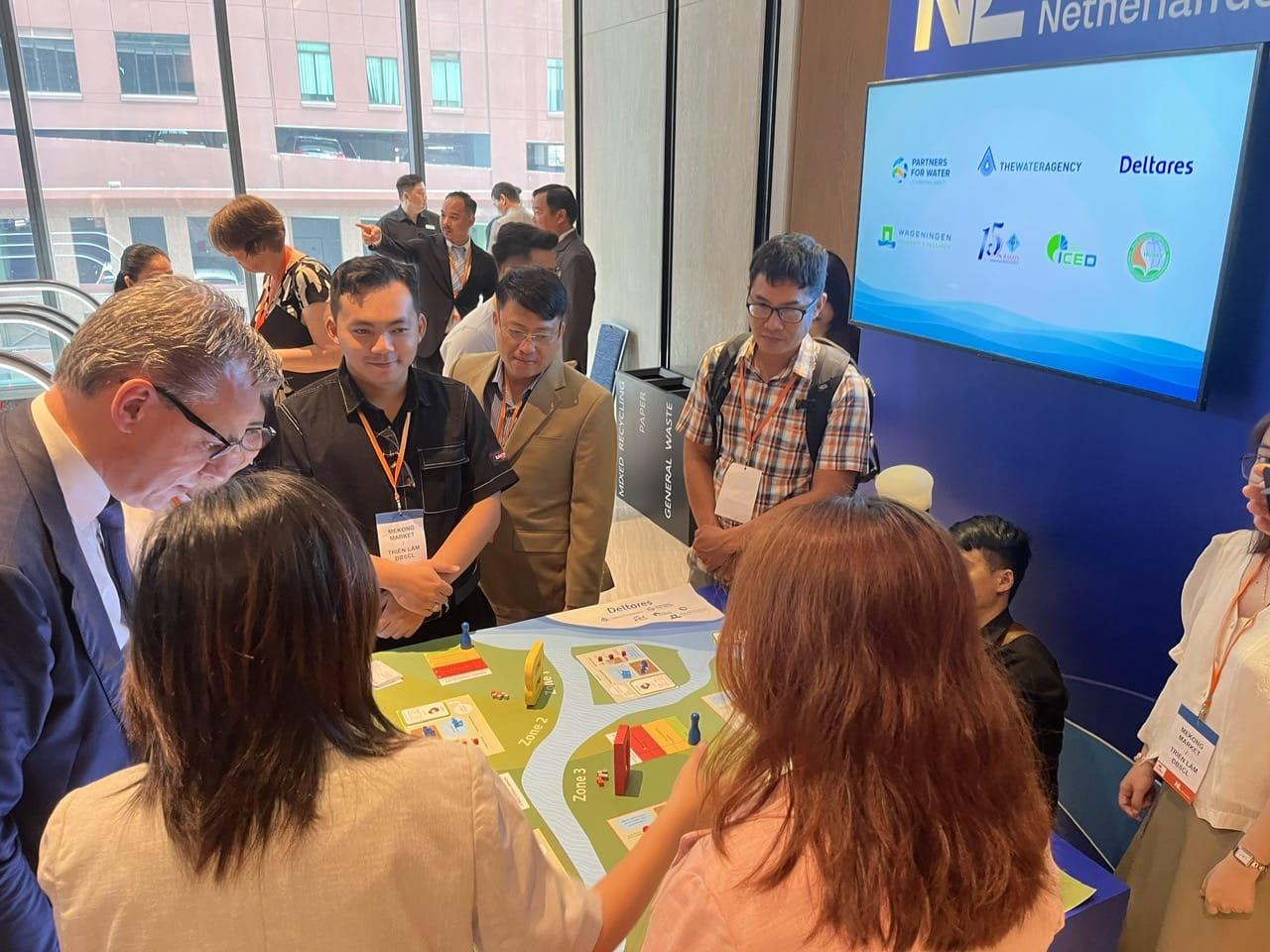Serious game for groundwater extraction negotiations in Vietnam
Livelihoods in the world's deltas, including the Mekong delta, are threatened by anthropogenic and climate factors. Upstream dam construction and overextraction of water and sediment resources lead to droughts, accelerated land subsidence, deterioration of water quality and salinisation of water resources. One of the main problems mentioned in the Mekong Delta Integrated Regional Masterplan is subsidence. To combat these challenges, Deltares – together with a range of partners – developed a serious game that encourages stakeholders to devise solutions to these challenges.

To overcome the short falling in addressing the root causes of subsidence hence the overexploitation of groundwater, the Vietnamese Ministry of Natural Resources and Environment (MoNRE) issued Decree 167 to conduct zoning and licensing of groundwater extractions.
Groundwater challenges in the Mekong
Groundwater is an important resource for the Mekong’s different water users, including households, farmers, industry, and water supply companies. But the overexploitation of groundwater has caused serious drops to groundwater levels over the past 25 years, causing subsidence and saltwater intrusion. The implementation of the Decree has been challenging for the provinces.
This project aims to contribute to the implementation of the Decree 167 by enhancing the governance of land subsidence and groundwater management through a joint trajectory with local stakeholders and workshop settings and gaming sessions.

Deltares, with input from The Water Agency (TWA), Can Tho University (CTU), the Department of Water Resources Planning in the South (DWPRIS) and local renowned hydrogeologists from ICED, developed a serious game.
Serious Game
The Game aims to:
- increase the awareness of water users regarding the consequences of groundwater use by clearly explaining the consequences of overexploitation, including salinisation, and subsidence.
- Offer water storage and savings solutions to increase resilience, empowering users to adapt their activities whilst supporting sustainable development in the Mekong.
To win, players must keep both their farms and the delta healthy and habitable. They will need to make decisions, including on which crops they will farm, how much water they will use, and if it is surface water or groundwater. They also need to evaluate the need to invest in solutions such as drip irrigation, managed aquifer recharge or surface water reservoirs.
A player’s decisions will affect them at a later stage in the game; groundwater salinisation, lowering groundwater levels, or subsidence - combined with a lack of mitigation - will come at a cost. For example, players may be limited in crop choices and water availability and face higher maintenance costs.
Players are encouraged both during and after the game to join in discussions and consider the various options to invest in win-win solutions.
Once they have completed the game, players can facilitate the implementation of groundwater regulations as well as motivate the investment in measures to improve groundwater management while ensuring the sustainability of the economic activities in the delta.
Stakeholder feedback
Those who have already played the game say it has improved communications, and increased knowledge and awareness.



